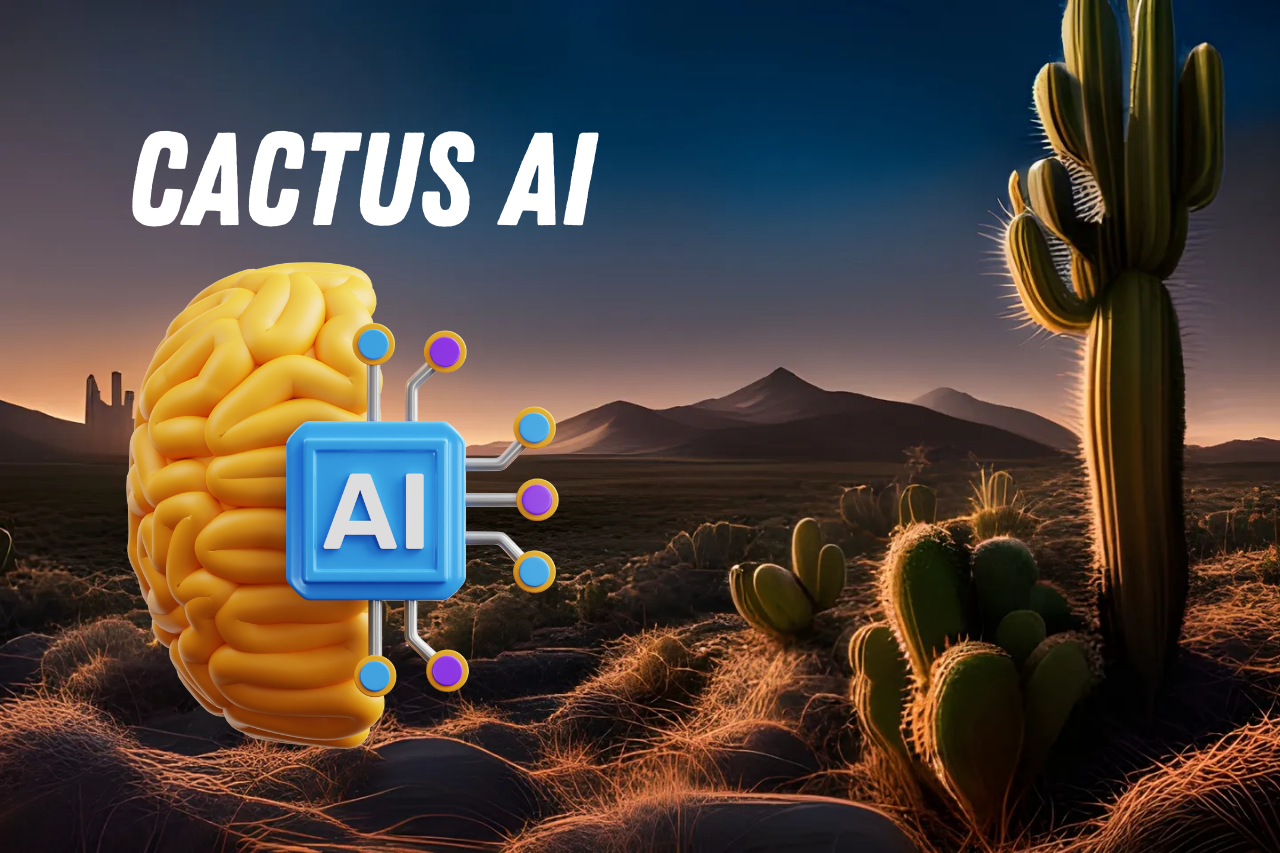
Unveiling the Potential of Cactus AI in Agriculture
Cactus AI, an innovative application of artificial intelligence in agriculture, represents a paradigm shift in crop management and resource optimization. By harnessing the power of AI technology, Cactus AI offers unprecedented insights and solutions to address the challenges facing modern agriculture.
Understanding Cactus AI
Definition and Concept
Cactus AI utilizes artificial intelligence algorithms and machine learning techniques to analyze data collected from cactus plants and their surrounding environment. By processing this data, Cactus-AI provides valuable insights into crop health, water usage, soil conditions, and other key factors influencing plant growth and productivity.
Applications in Agriculture
The applications of Cactus AI in agriculture are diverse and multifaceted. From precision irrigation and pest management to yield prediction and disease detection, Cactus-AI empowers farmers with the knowledge and tools needed to make informed decisions and optimize their farming practices.
Benefits of Cactus AI
Improved Crop Management
One of the primary benefits of Cactus AI is its ability to enhance crop management practices. By analyzing real-time data on plant health and environmental conditions, Cactus-AI enables farmers to implement targeted interventions, such as adjusting irrigation schedules or applying fertilizers, to maximize crop yields and quality.
Resource Efficiency
Cactus AI promotes resource efficiency by optimizing the use of water, energy, and other inputs in agriculture. By precisely monitoring plant water needs and soil moisture levels, Cactus-AI helps farmers minimize water wastage and reduce environmental impact while ensuring optimal crop growth and productivity.
Challenges and Limitations
Environmental Factors
Despite its potential benefits, Cactus-AI faces challenges related to environmental factors such as climate variability and soil diversity. Adapting AI algorithms to different environmental conditions and agricultural settings requires ongoing research and development to ensure accuracy and reliability.
Technological Constraints
The widespread adoption of Cactus-AI in agriculture is hindered by technological constraints, including limited access to high-quality data, insufficient infrastructure, and affordability issues. Overcoming these barriers requires investment in research, education, and technology transfer initiatives.
Future Prospects
Advancements in AI Technology
As AI technology continues to evolve and improve, the capabilities of Cactus-AI are expected to expand, enabling more sophisticated analyses and predictive modeling. Advancements in machine learning algorithms and sensor technologies will further enhance the accuracy and efficiency of Cactus AI systems.
Potential for Innovation
The future of Cactus AI holds promise for innovation and transformation in agriculture. From autonomous robotic systems for field monitoring to smart irrigation networks powered by AI algorithms, the possibilities for leveraging AI technology to address agricultural challenges are virtually limitless.
Impact of Cactus AI on Agriculture
Case Studies and Success Stories
Several real-world examples demonstrate the transformative impact of Cactus-AI on agriculture. In arid regions prone to drought, Cactus AI has enabled farmers to achieve higher crop yields and conserve water resources through precision irrigation and drought-resistant crop varieties.
Real-World Applications
In addition to improving crop yields and resource efficiency, Cactus-AI has practical applications in pest management, disease detection, and soil health monitoring. By providing early warning systems for pest infestations and crop diseases, Cactus-AI helps farmers implement timely interventions and minimize crop losses.
Conclusion
Cactus AI represents a revolutionary approach to agriculture that combines the power of artificial intelligence with the principles of sustainable farming. By leveraging AI technology to monitor, analyze, and optimize crop production, Cactus-AI holds the potential to revolutionize the way we grow food and manage natural resources.
FAQs about Cactus AI
- What is Cactus-AI?
Cactus AI is an innovative application of artificial intelligence in agriculture that uses AI algorithms and machine learning techniques to optimize crop management practices and resource efficiency. - How does Cactus-AI benefit agriculture?
Cactus-AI benefits agriculture by providing farmers with real-time insights into crop health, water usage, soil conditions, and other key factors influencing plant growth and productivity, allowing for targeted interventions and optimized farming practices. - What are the challenges associated with implementing Cactus-AI?
Challenges associated with implementing Cactus-AI include environmental factors such as climate variability and soil diversity, as well as technological constraints such as limited access to high-quality data and affordability issues. - Is Cactus AI accessible to farmers worldwide?
While Cactus-AI holds promise for transforming agriculture, its widespread adoption is hindered by technological and economic barriers. Efforts to increase access to Cactus-AI technology and support for farmers are needed to realize its full potential. - What are the prospects of Cactus-AI in agriculture?
The prospects of Cactus-AI in agriculture are bright, with advancements in AI technology expected to expand its capabilities and potential applications. From precision irrigation to pest management, Cactus-AI has the potential to revolutionize the way we approach farming.


